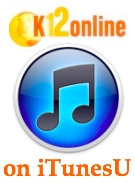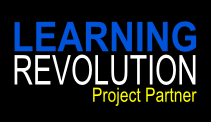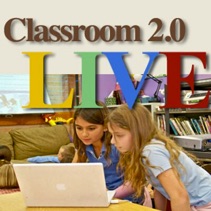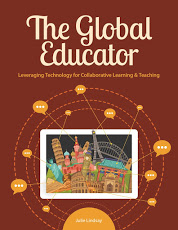Incredible!
That is the one word that describes the presentations so far! The keynotes and presenters these first two days of the K12Online conference have simply done an incredible job. On behalf of the conference conveners thank you so much for your hard work. It certainly shows in the quality of your presentations. If you have enjoyed yourself so far– the rest of the week’s presentations are just as good! You are in for a treat. If you want to refer back to any previously presented sessions we have made the agenda linkable. Simply click on the AGENDA tab on the conference blog.
Fireside Chats- Virtual Style
Join the conference organizers and the keynote speakers in free wheeling open-ended chats in Eluminate. These are open to anyone interested in participating. Ask the keynotes about their presentations or share your thoughts and ideas about the other presentations seen this week. This is an opportunity for all presenters and participants to get together and get to know one another.
Because we ran out of seats in Elluminate during David Warlick’s fireside chat, we have made provisions to make sure that doesnt happen again. There will be a space for everyone who wants to attend.
Do I Need Special Software?
Nope! All you need is a computer with a microphone and speakers, a head-set works best. Then on Oct. 26, 2006 at 7pm Eastern (what time is that where I am?), after you have watched almost all the Week One presentations and keynotes, simply CLICK ON THIS LINK and the Elluminate software will load and then drop you into the virtual meeting room.
Someone will be in the room an hour early to help you check your mic and give a quick overview of the very intuitive tools used in the Elluminate environment. If you have any questions ahead of time email Sheryl Nussbaum-Beach.
The Fireside Chat Schedule is below:
Fireside Chats via Elluminate
- Oct 26th at 7 pm Eastern (what is that in my time?): Bud Hunt and Alan Levine, Week 1 Presenters, conveners and YOU!
- Oct 28th at 11 am Eastern (what is that in my time?): Ewan McIntosh and Anne Davis,Week 2 presenters, conveners and YOU!
Archives
Each session will have an ARCHIVE of the chat which will be posted under the Live Events tab on the conference blog.
Take Away Wiki
Another tab you may not have noticed on the conference blog is the one labeled wiki. It has a link to our Take Away Wiki for conference participants. This is the collaborative space where YOU enter the conversation. This is YOUR wiki. Our hope is that conference participants will add resources, links to presentations, materials, and other items that relate to the strands of the conference. Help add to the value of this experience. None of us are as good as all of us!
When Night Falls
We’re in the midst of planing the final event for K12 Online 2006. It’s called When Night Falls. The idea is to have a 24 hour long worldwide skypecast – networking – and Tapped In chat experience. As night falls across the planet, educators across the globe will come online to connect and reflect about their experiences at K12 Online 2006. For this to work we’re going to need some help to keep things going for 24 hours straight. Everything you need to know is on the When Night Falls Wiki. We even have screencasts on skypecasting and other tips and tricks for moderators and participants. Check it out and get involved. You need to join Tapped In too. Once you are a member, instructions for joining the K12Online room are in the Welcome area of Tapped In. Help Desk staff will be on hand to answer your questions for the Nov. 4, 0:00 GMT (Nov. 3, 7:00pm Eastern) kick off.
So take some time and explore the Tabs at the top of the K12Online Conference Blog. There is much that awaits you! And while you are at it… click on the Frapper Map tab and add yourself to the community.
Darren, Sheryl, and Wes







